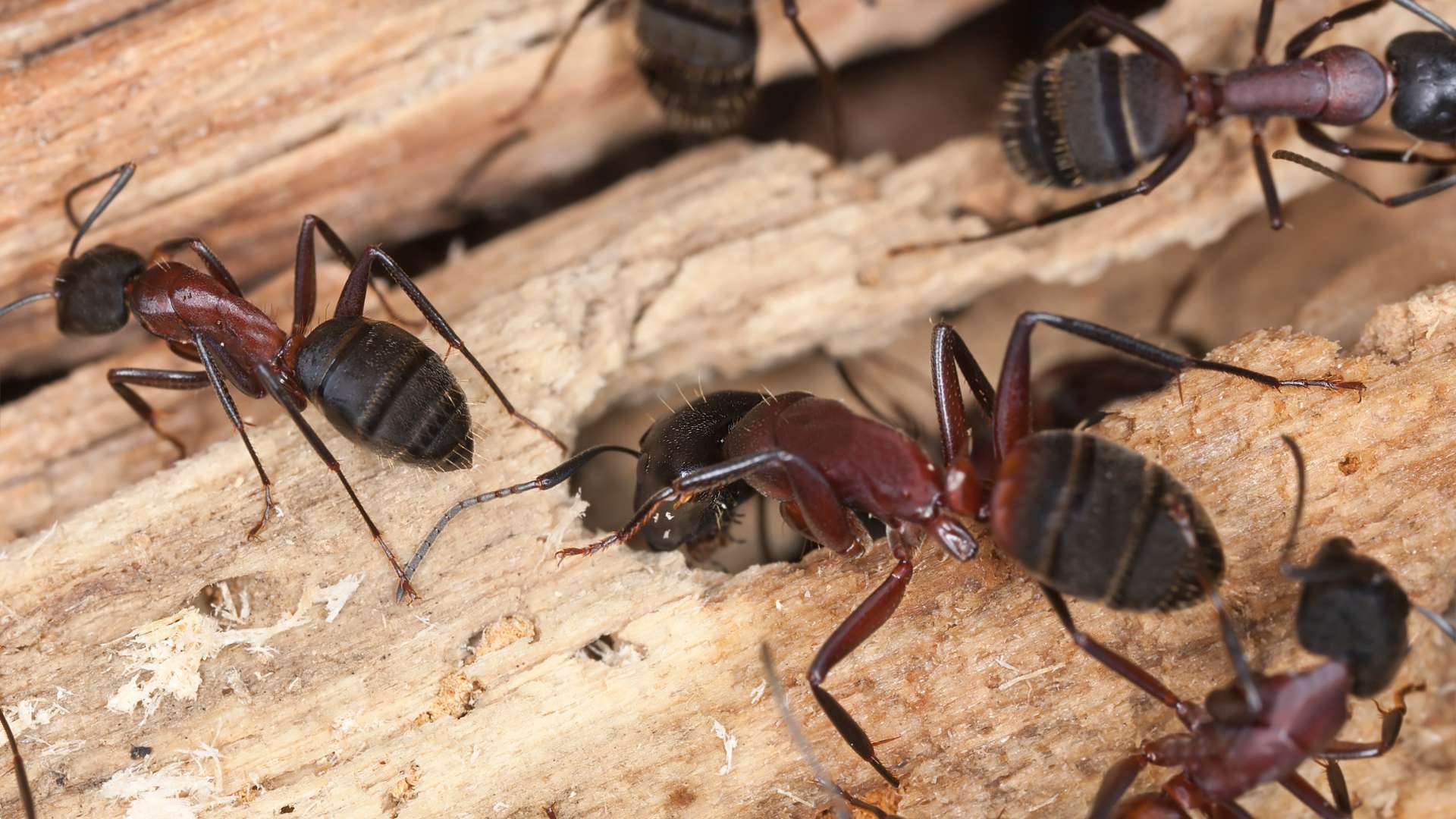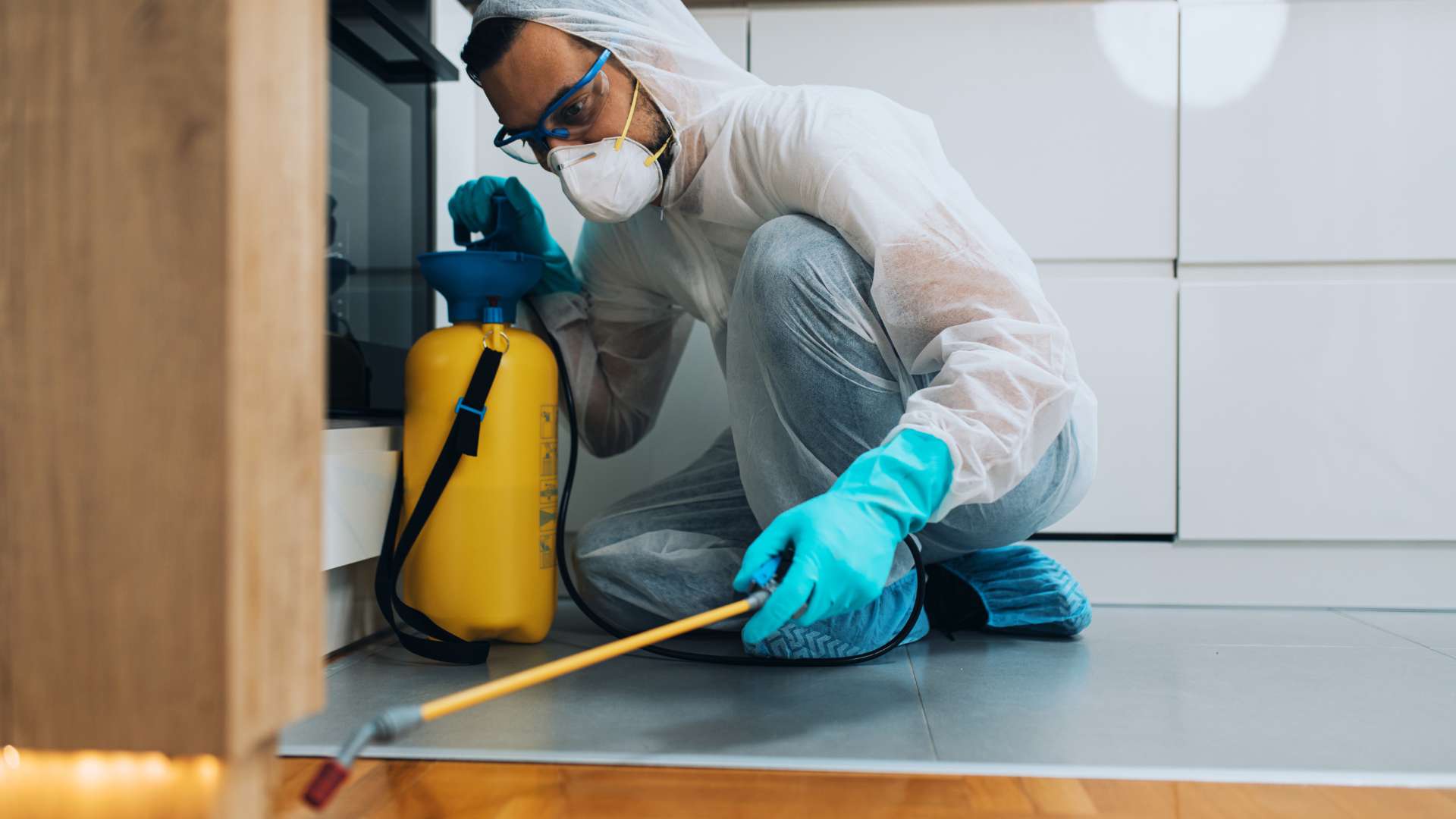Ants in the house can be a real headache, and if you’re looking for a solution, you’ve likely come across cinnamon as a natural remedy. But does it actually work, or is it just another myth?
As pest control professionals, we’re here to break down the facts and let you know if cinnamon is a real contender for keeping ants out.
Whether you’re dealing with the occasional kitchen intruder or a full-blown ant invasion, we’re here to help you find out if cinnamon can be part of your solution—or if it’s time to call in the pros.
How Does Cinnamon Work for Ant Control?
Cinnamon has long been known as a natural ant deterrent. Here’s why it works:
- Strong Scent: Cinnamon’s intense aroma, particularly from its essential oil, is strong enough to mask the pheromone trails ants leave to communicate and navigate. This disrupts their movement and makes it hard for them to find food sources.
- Cinnamaldehyde Effect: Cinnamaldehyde, the essential oil compound in cinnamon, has been shown to repel ants. When exposed to it, ants tend to avoid the area entirely.
Types of Cinnamon Effective for Ant Control
There are different forms of cinnamon you can use for ant control:
- Ground Cinnamon: This form is easy to sprinkle around ant entry points and works well for indoor applications.
- Cinnamon Oil: Cinnamon essential oil has a stronger scent and can be diluted to create a spray, making it effective for treating larger areas or outdoor spaces.
Choosing Between Ceylon and Cassia Cinnamon
While Ceylon cinnamon is often preferred in cooking for its milder taste, Cassia cinnamon is commonly used for pest control due to its stronger aroma. Either type can work, but Cassia may provide a more potent effect against ants.
Does Cinnamon Kill or Repel Ants?
It’s essential to understand that cinnamon is primarily a repellent, not a killer. When ants encounter cinnamon, they tend to avoid it rather than perish upon contact. This makes cinnamon ideal for those who prefer a non-lethal approach to pest control. However, in cases of severe infestations, cinnamon alone might not completely eliminate the problem.
Evidence and Limitations
Anecdotal evidence supports cinnamon’s effectiveness in repelling ants, but it may have limitations:
- Works Best for Mild Infestations: Cinnamon can deter ants in small to moderate numbers but may not be effective in controlling large colonies.
- Effectiveness Varies: Environmental factors, like ventilation and the ant species, can affect how well cinnamon works.
Step-by-Step Guide: Using Cinnamon for Ant Control
Ready to try cinnamon as a solution to your ant problem? Here’s a step-by-step guide to get started.
Preparation
- Identify Entry Points: Look for areas where ants are entering your home, such as doorways, windowsills, and small cracks.
- Choose Your Cinnamon Form: Decide whether you want to use ground cinnamon or cinnamon essential oil. Both have their unique benefits and application methods.
Application Methods
Sprinkling Ground Cinnamon
Sprinkling ground cinnamon is a simple and effective way to deter ants indoors:
- Where to Apply: Sprinkle a thin line of cinnamon near windows, doorways, and any visible ant trails and maybe inside the ants nest. The scent will help repel ants from these areas.
- Application Tips: For added effectiveness, create a barrier around areas where you’ve spotted ants entering.
Using Cinnamon Essential Oil
Cinnamon oil can be even more effective due to its concentrated scent:
- Diluting the Oil: Mix a few drops of cinnamon essential oil with water to create a natural spray. Use a ratio of 10-15 drops of oil per cup of water.
- How to Apply: Spray the mixture along baseboards, windowsills, and entry points. Reapply as needed to maintain its potency.
Frequency and Maintenance
To keep ants at bay, reapply cinnamon every few days or whenever you notice the scent fading. Consistent application will help create a long-lasting barrier.
Advantages and Disadvantages of Using Cinnamon for Ant Control
Pros of Using Cinnamon
- Safe for Children and Pets: Cinnamon is non-toxic, making it a safer option for homes with kids and pets.
- Affordable and Accessible: Most households have cinnamon in their spice cabinet, so it’s easy to try without extra cost.
- Eco-Friendly: Cinnamon doesn’t contain harmful chemicals, making it an environmentally friendly choice.
Cons of Using Cinnamon
- Frequent Reapplication Needed: Cinnamon’s scent can fade, requiring regular reapplication to maintain its effectiveness.
- Potential Surface Stains: Ground cinnamon can leave a brownish tint on some surfaces, so test a small area first before using it widely.
- May Not Work for Severe Infestations: Large colonies or persistent ants may require a more comprehensive pest control solution.
Additional Tips for Enhancing Ant Control with Cinnamon
For even stronger results, consider these additional methods:
- Combine with Other Natural Remedies: Mix cinnamon with ingredients like vinegar or lemon for a more potent repellent effect. You can make a simple DIY spray by combining cinnamon oil, lemon juice, and water.
- Practice Prevention: Besides using cinnamon, keep your home clean and store food in sealed containers. Ants are often drawn to crumbs and open food sources, so eliminating these can significantly reduce ant problems.
When to Consider Professional Pest Control for Ants
While cinnamon is a great natural remedy, some situations may require professional intervention for
ants pest control:
- Signs of Large Infestations: If you’re seeing extensive ant trails or large numbers, the colony may be too large for cinnamon alone to handle.
- Structural Damage: Some ants, like carpenter ants, can damage wood structures. Professional pest control can ensure these infestations are handled safely and effectively.
Conclusion
Using cinnamon for ant control offers a natural, safe way to deter these pests from your home. It’s easy to apply, safe around children and pets, and environmentally friendly.
While cinnamon can help with minor to moderate infestations, larger colonies might require more robust solutions. Give cinnamon a try as a first step toward a pest-free home, and remember that professional help is always available for more severe cases.


